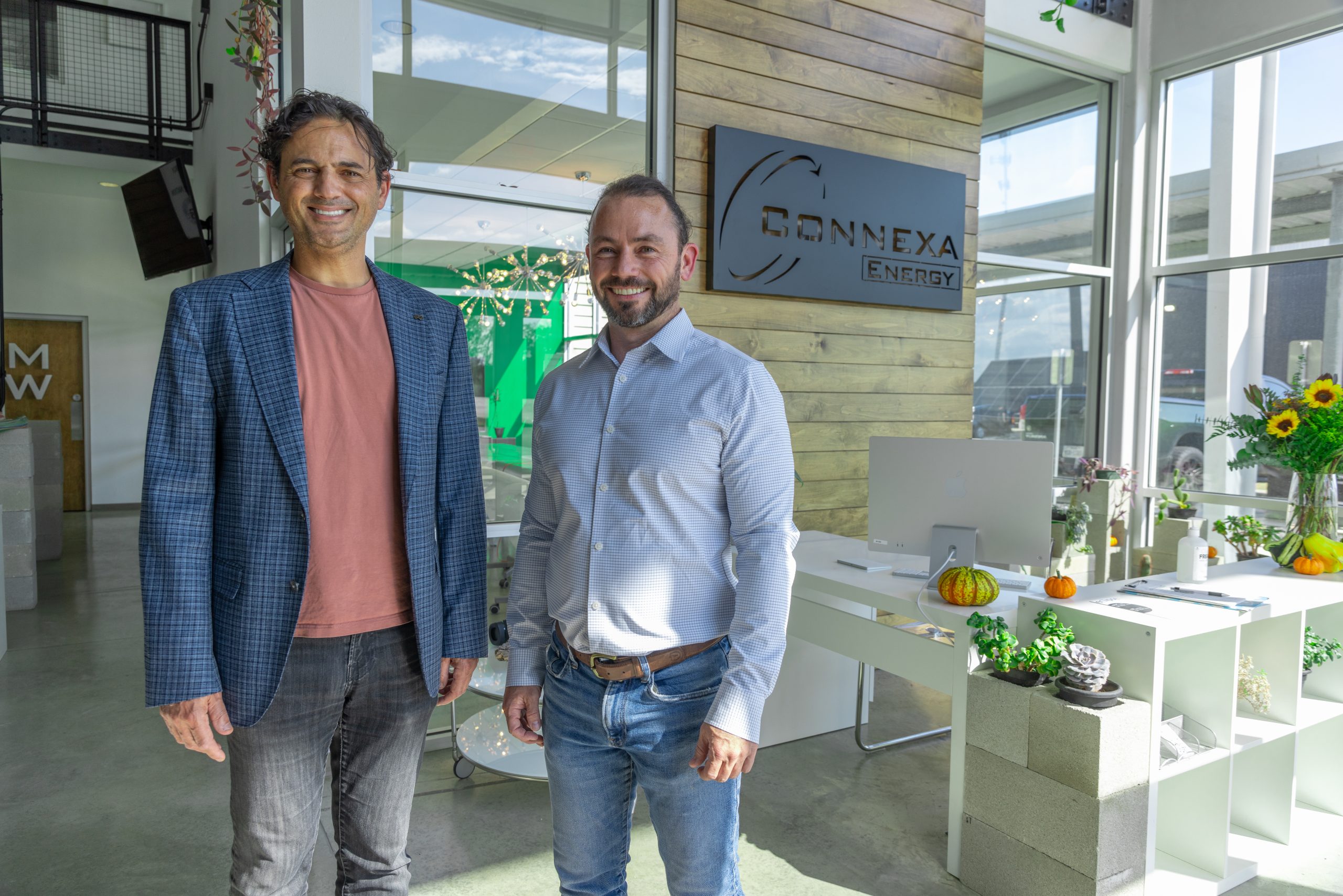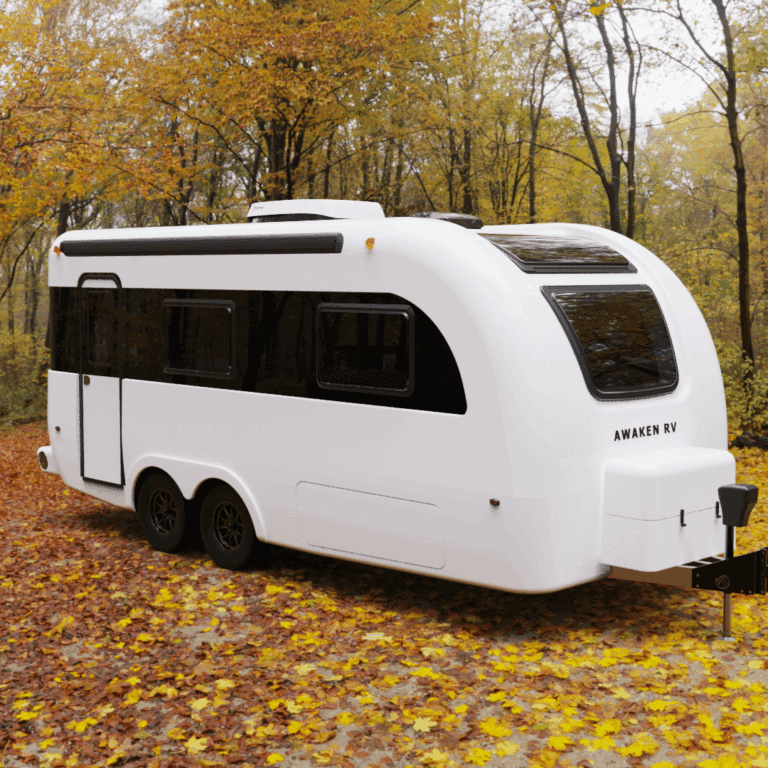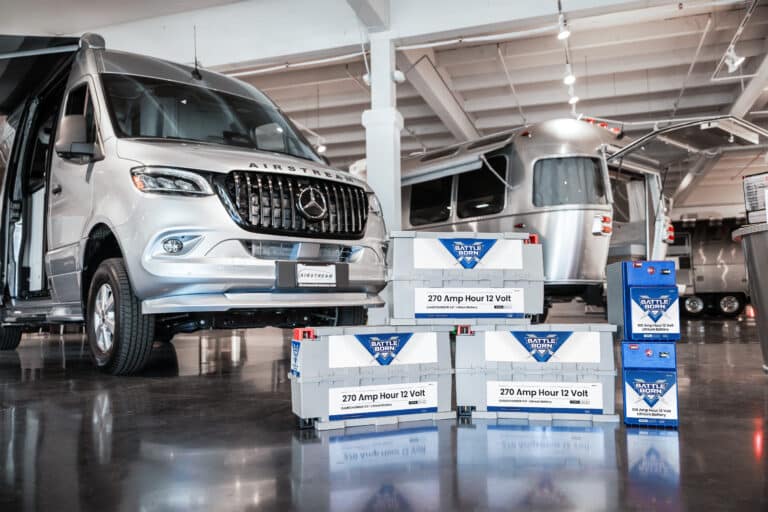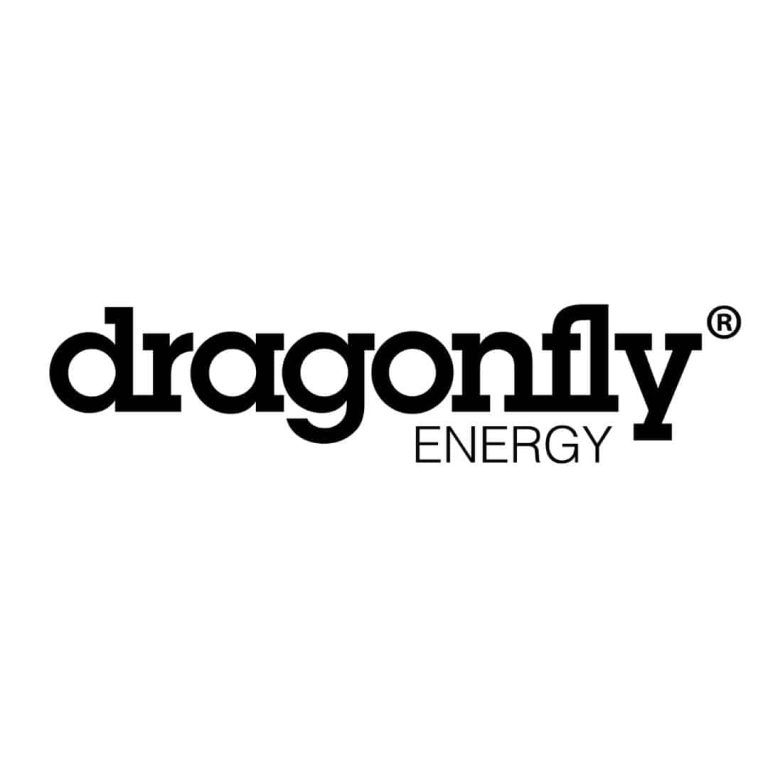As a flourishing resource for creating clean and sustainable energy, harnessing the power of solar energy is a rapidly growing industry, providing many advantages for taxpayers, homeowners, and businesses. Michael Postel witnessed the high demand for remote power and solar energy which led him to become the founder of Connexa Energy, an industry leader in catering to the world’s remote power needs.
The Journey to Remote Solar Energy
Connexa Energy is a leader in cutting-edge power products and systems, with a focus on solar, based out of Comfort, Texas. Now serving the nation with industrial power, automation, and IIoT products, Connexa originally came to fruition after Michael Postel, Founder and President of Connexa Energy, found himself in need of power in remote areas to conduct IT work. He was inspired by both the Texas sun and the decreasing cost of solar to serve his business in remote locations using solar power.
Now, 16 years later, Postel is still disrupting the market with innovative solar technology, utilizing energy storage solutions in his company’s service designs to continue to evolve with the growing solar industry.
In this episode of The Li-MITLESS Energy Podcast, host and CEO of Dragonfly Energy, Denis Phares sits down with Michael Postel to discuss solar energy, entrepreneurship, and a college experience as an Aggie. Denis, a former Texas A&M professor, and Michael, a Texas A&M alum, dive deeper into the moving pieces of an ever-changing industry, what solar is capable of, and how lithium-ion batteries can be utilized to further service remote energy needs.
Watch the full episode on our YouTube channel or listen to the episode wherever you get your podcasts. You can also visit Connexa Energy’s website for more resources, or to learn more about solar power innovation.
Podcast Transcript
Denis Phares 0:17
Welcome to The Li-MITLESS ENERGY Podcast. And it’s my pleasure today to introduce my guest, Michael Postel. Founder and President of Connexa Energy. It’s basically a remote power company based out of Texas with a focus on solar. Welcome.
Michael Postel 0:35
Thank you.
Denis Phares 0:36
So, you’re an interesting guest because, in terms of solar energy, you’ve been doing this for quite some time. When did you start the company?
Michael Postel 0:44
So, we’ve been around since 2006.
Denis Phares 0:47
2006. And before that, were you involved in solar projects at all?
Michael Postel 0:50
Actually, it began in 2006 for us, yeah.
Denis Phares 0:53
Okay, in Texas?
Michael Postel 0:54
In Texas.
Denis Phares 0:55
So, what was the solar industry like in Texas at the time?
Michael Postel 0:59
I think 2006 was a little bit early for… 2008 is when I feel like it really started expanding rapidly. So, in 2006, we were using it to power cameras. I had an IT company and we were doing projects in remote areas, construction sites, things like that. And we needed power, so that’s how I got into it, is learning about how to power these devices. And 2008 came, and there was just a lot of expansion of solar including us. And we spent our time, a little bit of time in some of the traditional solar applications, like residential, commercial, and ultimately, just ended back to more on the industrial side where we’re powering electronics in remote areas.
Denis Phares 1:44
What was it about 2008 in Texas? Was it sort of a national thing or was it specific?
Michael Postel 1:48
I think it’s a national thing, yeah. The GoGreen movement where you just had a lot of money and investment in the green sector.
Denis Phares 1:56
And maybe the decrease in cost in solar as well had something to do with it. It was around that time we were talking, I don’t know, 5, $6 a watt.
Michael Postel 2:05
It used to be, yeah.
Denis Phares 1:07
And after that, it’s sort of dropped pretty rapidly to about $1 a watt, right?
Michael Postel 2:11
It did, yeah. Solar has been coming down, I would say, consistently.
Denis Phares 2:19
Mm-hmm. So, with your early projects, what fraction of them were solar when it came to remote power?
Michael Postel 2:27
So, I would say, at the beginning, all of them. We’ve, over the years working with different industrial groups, have expanded our line of offerings to be outside of solar, to some degree. But I say our core product is still solar, but at the beginning, it was all solar. And we were doing some niche areas of solar like solar water pumping applications. We did a little bit of work in wind turbines at one point, but ultimately, battery-based solar has been our core product.
Denis Phares 2:58
Let’s talk about your background a little bit, and this is nice for me because you’re an Aggie, Texas A&M Aggie. My first faculty job was teaching at Texas A&M. I was there 01 to 03 about, and when were you there?
Michael Postel 3:15
2000 to 2004.
Denis Phares 3:15
Okay, that’s awesome. So, we did overlap. I don’t know if you ever saw my band at Fitzwilly’s?
Michael Postel 3:22
I might have.
Denis Phares 3:22
Yeah, I hope so. We were pretty good. We were a pretty rocking band back in the early 2000s. But what was your major?
Michael Postel 3:31
Ag economics.
Denis Phares 3:32
Ag economics. Is that relevant to what you’re doing now or a bit of a stretch?
Michael Postel 3:37
Well, the economics part, I would say. We do service some of the ag industry, not a lot. But yeah, I would say the economics part for sure.
Denis Phares 3:45
And how did you like A&M?
Michael Postel 3:47
I loved A&M. Being from Houston originally, it was a really common place to go. And I enjoyed my stay there and the community around it.
Denis Phares 3:56
Yeah, it’s a fun place to be. It’s very much a college town. Actually, it’s really different now, isn’t it?
Michael Postel 4:01
Yeah, it is. Going back there is completely different.
Denis Phares 4:05
And, well, you’re based in Austin. No, you’re outside Austin?
Michael Postel 4:09
Yes. Our facility is based out of, I would say, Austin, San Antonio, but more San Antonio, and Texas wine country, and a little town called Comfort, which is up in the hills, west of San Antonio on Interstate 10. And I live in Austin.
Denis Phares 4:25
Okay. Do you get any crap for being an Aggie?
Michael Postel 4:29
A little bit, yeah. (Laughs)
Denis Phares 4:32
So, as you graduated in Ag economics, you said your family was in the steel business?
Michael Postel 4:40
Yes.
Denis Phares 4:41
Is that where you started your career?
Michael Postel 4:43
I did. I worked with them here and there on different types of jobs. Growing up, really, that’s all we knew was the steel business.
Denis Phares 4:52
And how did that evolve into what you’re doing now?
Michael Postel 4:55
So, I would say, business and being an entrepreneur in our blood, that’s what we’ve just been raised with. So, I went to A & M. I tried to escape it briefly by being a pilot. So, out of A&M, I was a helicopter instructor and flew airplanes. Eventually, just ended up opening an IT company and it evolved to what we have now. But tried to escape, it wasn’t successful.
Denis Phares 5:20
So, as an IT professional, you’ve found the need for remote power, and so you addressed it with your entrepreneurial spirit.
Michael Postel 5:27
Yeah. There’s a lot of devices even more now than there was back then with the IoT movement. We’re launching electronics in every category everywhere. So, there’s a need to power them easily, to have these devices easily deployed. And so, I would say, the core of what we do is we enable the rapid deployment of those rapid and easy deployment of electronics.
Denis Phares 5:53
How did you get the company off the ground? How’d you finance it?
Michael Postel 5:58
At the beginning, luckily, it didn’t require a lot of capital. I started IT, it wasn’t like hardcore manufacturing or anything like that. So, just began and let it evolve over time. And, of course, when we got into more rapid growth, financing it became harder, still as we’re in a growth phase, but I would say natural evolution on it.
Denis Phares 6:24
How has your customer base evolved over the years? You do a lot of oil and gas now, but it…
Michael Postel 6:31
We traditionally have done a lot of oil and gas, and we still do. We have been in the commercial sector in recent years, I’d say that we’re kind of following the trends. We do a lot of the security industry now. So, really, anything that’s electronics deployed out to remote areas, or anything that’s portable, that needs to be moved around. We’re primary power, using solar. And so, yeah, I would say, traditionally, it was oil and gas, and it still is a lot of oil and gas, we are expanding in oil and gas. But it’s a lot of other ones as well.
Denis Phares 7:02
And are you mainly in Texas or national?
Michael Postel 7:05
So, we ship nationwide and worldwide, but we’re based out of Texas only.
Denis Phares 7:09
Is most of your business in Texas?
Michael Postel 7:11
We have a lot of business in Texas, but we do ship regularly nationwide, I would say. And then, depending on the year, it might be worldwide, more or less frequent.
Denis Phares 7:20
Over the last 16 years that you’ve been doing this then, how has the industry evolved?
Michael Postel 7:27
It’s definitely changed. Solar has come down in price a lot and has changed a lot of things. I would say that, in recent years, there’s been a big interest in storage. We’ve been on battery-based storage solar since the beginning, all of our solar-powered systems generally are battery-based. And so, there does seem to be a pretty heightened interest in that area nowadays. And with the IoT movement, where everything connects to the cloud, as well as AI coming into the public’s grasp at the edge at the sites where the systems are becoming smarter, there’s a need for more and more power. And so, I would say that it’s been increasing rapidly.
Denis Phares 8:14
So, more power is really needed because of the increased computational requirements.
Michael Postel 8:19
Exactly. Yeah, back in, probably, the old days, there wasn’t as much going on. And now, there’s a lot more going on. And there’s going to be even more going on at what we call the edge, which is right at the site.
Denis Phares 8:33
The edge. That’s funny because that’s kind of a new term for the grid, the grid edge, which is at the residential level, that’s the edge of the grid.But you’re off-grid, and you’re at the edge in a remote fashion.
Michael Postel 8:50
Yeah. And I would use the term edge versus the cloud. Where is that processing taking place?
Denis Phares 8:58
I see what you… So okay, so grid edge in terms of the grid edge, we’re talking about power, but you’re talking about where the computations actually happen. So you have AI computations happening remote instead of at the cloud. Okay. I’m sorry, go ahead.
Michael Postel 9:09
Exactly. Yeah. If you had, say, an industrial process site going on, whether it be oil and gas, anything, there’s more and more automation happening at that site. And so, those decisions are being made, what we call, at the edge. And then, there’s other decisions that have to be made in the cloud, so that’s where you get your communications link. So, we’re going to power the computers out the site, as well as the communications equipment to get the data back to the cloud.
Denis Phares 9:40
Okay. So, it’s important that the computations be completed and the decisions be made without having to rely on a cloud. Is it still connected to a cloud?
Michael Postel 9:49
Yes, generally. Some people have private networks and they’re going back to their private servers. I’d say that it seems like most people are really migrating to cloud, but that’s exactly right. That’s one of the considerations is if that link fails, can you still run the site, and, in which case, that needs to be done at the edge? But there are certain things that cloud power is better at looking at. And coming up with more macro conclusions on the datasets.
Denis Phares 10:16
Sure. But when you need speed that has to be done at the edge.
Michael Postel 10:19
Yeah, I would say in general.
Denis Phares 10:21
What are the industries… Because you’ve done a lot of oil and gas, you said, what is it specific there that they would require so much computational capabilities there on site?
Michael Postel 10:32
These systems are looking at more and more data points, more and more sensors. And then, coming up with conclusions to make it more efficient, and also try to predict problems that might be coming up on the site to avoid maybe a shutdown in the oil and gas case. So, things of that nature.
Denis Phares 10:53
Is that specific to oil and gas, or is it common in other industries as well?
Michael Postel 10:57
I think there’s a lot that can go wrong in oil and gas. So, I think it’s probably pretty important there but other industries as well. There’s a lot of what we do, is increasing an ag, there’s a lot of ag tech coming out that’s pretty neat. So, I think AI is changing things, and definitely, the future. But having that done at the site, we enable that to happen.
Denis Phares 11:21
Okay. You’re facilitating remote AI, I didn’t realize that… That’s an interesting niche, actually. This is power specifically for these power-hungry IT applications and your background was running an IT company. So, that’s really what’s evolved, is the computational capabilities and the extra power that’s required. And it’s being applied to these remote industries like oil and gas. That’s really interesting. How do you see this evolving in the future? Is this going to become more prevalent for other sorts of remote industries?
Michael Postel 11:58
I think so. We focus on remote and portable in general. And so, there definitely is an increasing trend towards more and more devices everywhere really. We focus on the remote part about it, but this IoT movement has been putting pieces of electronics, whether they’re big or small, almost everywhere. It’s like you say you had a refrigerator, now you have a smart refrigerator, it connects to the cloud. So, we’re seeing that trend across the board, and across the industries.
Denis Phares 12:31
Mm-hmm. Let’s talk a little bit about Texas and the renewable energy industry in Texas, which is enormous. Texas has enormous amount of solar and wind. How has the state of Texas led the way in this area?
Michael Postel 12:47
Yeah. Well, we have a lot of sun.
Denis Phares 12:50
That’s requirement number one.
Michael Postel 12:52
Yeah. So, we have a lot of oil and gas companies, and ironically, solar, I think was kind of… I feel like, back in the old days, I had a guy that has worked for me for a long time, Alex Berg, and there’s a lot of oil and gas companies back in the day in old school solar, so they’ve been doing it a long time. I feel like there’s been a lot of solar in Texas before it was cool, if you will. But yeah, we have a lot of solar farms going in. Of course, there’s a big interest in renewables, we have a great state for it. So, you have a lot of people talking about it as well.
Denis Phares 13:27
Well, generally, folks think about solar and wind as replacement for oil and gas, so that we use more renewable energy, we stop burning fossil fuels. But, in this way, you’re actually facilitating… We still need fossil fuels, that’s not going away, ever, completely, but it is ironic that you actually do need more renewable energy and remote energy in order to even facilitate the industry. Is that accurate?
Michael Postel 13:57
Yeah, I think it is. You have a lot of electronics that are just doing more and more jobs. What we do, especially, in our little small solar world is we enable those electronics in those remote areas. Without solar, there’ll be a huge reduction in the amount of electronics you could deploy to do these various jobs.
Denis Phares 14:20
Yeah. Well, that’s fascinating. Let’s talk about growing a company the way you have. So, you started the company, you own the company, you’re 16 years into it. You’ve been growing dramatically for some time now. When you first started, is this where you knew it was going?
Michael Postel 14:41
No, for sure not.
Denis Phares 14:42
Where did you see it headed?
Michael Postel 14:45
It was hard to say back then. I felt like the GoGreen movement was in its infancy and it was hard to tell where it was going, it was evolving quickly. I felt like we evolved kind of in parallel with it. Not in the mainstream solar, we’ve always been in the…
Denis Phares 15:05
That’s the thing, you’re not really the GoGreen Movement. You’re the remote power, remote computational movement.
Michael Postel 15:11
Yeah. Maybe a little bit of both. Yeah. So, we’re using the sun to primary power.
Denis Phares 15:18
So, where did you see it headed? Where did you think that you would be at this point?
Michael Postel 15:21
It was really hard to see where this was all going at the time. And, I would say, just over the years, just evolution caused us to. The situation happens, this customer comes along, and you kind of end up just following kind of your path in a way. And that’s how we ended up here, but I couldn’t have predicted it.
Denis Phares 15:43
Mm-hmm. I asked because, in my case, I had no intentions or no idea. I just had a cool technology, I wanted to start a company around it and here we are now. I never thought I’d be at this point. And, of course, the path to get to this point is sometimes fun, sometimes awful and painful, both. Yeah. So, let’s talk about your evolution from starting a company to now running this pretty big company. What are the things that you loved about it, what are the things you hated about it? I’m talking from just an entrepreneur going through this process.
Michael Postel 16:26
Well, there’s definitely different stages where, as the founder, you do different jobs. At the beginning, you’re more hands-on. And as you grow, one of the tricky things is doing the same thing through these systems that have to be put into place and these processes, and stuff takes a little bit of time and effort to develop. And it’s tricky to do, to make the time to do it, and the resources to do it. But as you grow, the processes, as we’ve kind of learned lessons in blood, are critical, systems are critical. And so, I think, at least, for me as an entrepreneur, I have to evolve. And growth can be painful, and can be tricky to navigate. And me, as a person, as a leader, I have to evolve with it. And so, a lot of new lessons to learn all the time.
Denis Phares 17:20
Right. The systems have to evolve, the people have to evolve. So, you evolve, but there are people that actually don’t. And sometimes the team you go in with isn’t the team you end up with just because of the evolution of the company. So, that’s interesting. Well, let’s talk about batteries now because batteries are a big part of what you guys are doing, and we’re sitting here because we make batteries, and you use batteries. So, let’s talk about the future of batteries. And obviously, you’ve done a lot of lead acid systems. And there is, I would say, relatively, even now in its infancy, a movement from lead-acid to lithium. Is that the right way to say it for today?
Michael Postel 18:03
I feel like there is. Yeah.
Denis Phares 18:04
It’s still in its infancy. We still see a ton of lead-acid systems out there.
Michael Postel 18:08
There’s definitely interest by, I think, all parties. Everybody wants to talk about it, know about it, so we are seeing that’s driving a lot of conversations.
Denis Phares 18:19
For the stationary installations, as opposed to mobile installations, weight is less important, right?
Michael Postel 18:26
Generally, yes.
Denis Phares 18:28
Generally. What do you see as the differences that lithium brings that can really make these systems better?
Michael Postel 18:37
I think the overall cost, the lifetime cost of the product. For us specializing in remote areas to send a crew to a job site can be quite costly. Sometimes there’s two people on a truck. Some systems are helicoptered on top of a mountain. So, less time before you have to do any maintenance or replacement is a pretty big deal for us.
Denis Phares 19:02
So you service these systems as well?
Michael Postel 19:04
We don’t personally, our company service them. Generally, there are integrators in the field, but…
Denis Phares 19:10
Okay. But you’re selecting the battery that goes into it, or is it mainly the customer that selects the battery?
Michael Postel 19:17
So, we generally make recommendations, and the pros and cons of each, and let the customer design.
Denis Phares 19:25
So, how much system design do you guys do?
Michael Postel 19:28
A lot. Yeah. Every project gets system designed. So, we’re putting our eyes on it, running it through our calculations, and making sure that what we say it’s going to do, it will do.
Denis Phares 19:42
Okay. Well, that’s awesome. Well, I will end by saying we look forward to working closely with you in the future. And thank you so much for coming on to the podcast.
Michael Postel 19:53
Of course. Thanks for having me.
Denis Phares 19:54
Yeah. Michael Postel, Connexa Energy. Thank you for joining the podcast today and be sure to subscribe on any of your favorite listening platforms.



